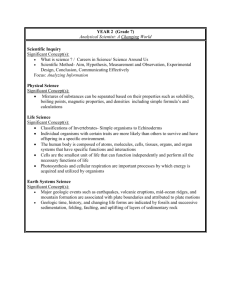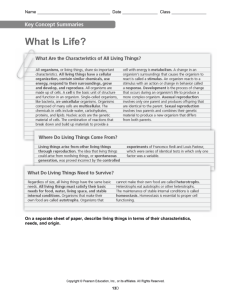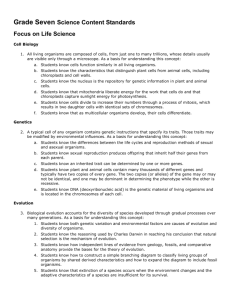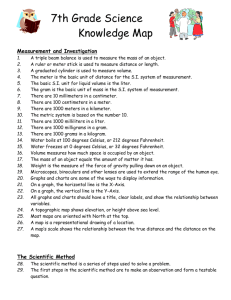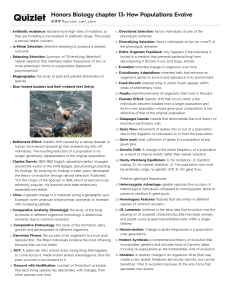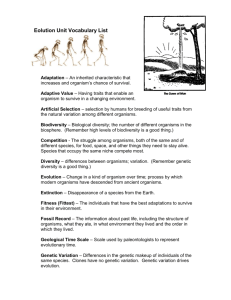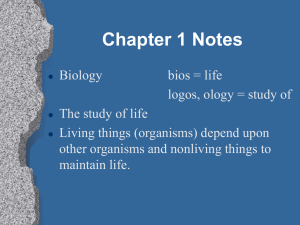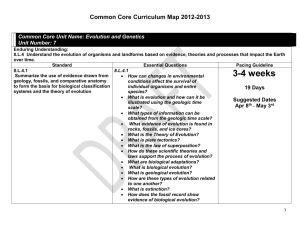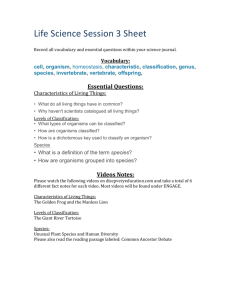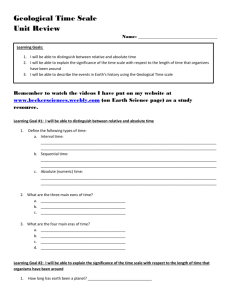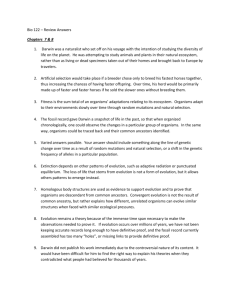Evolution and Genetics Unit Number: 5
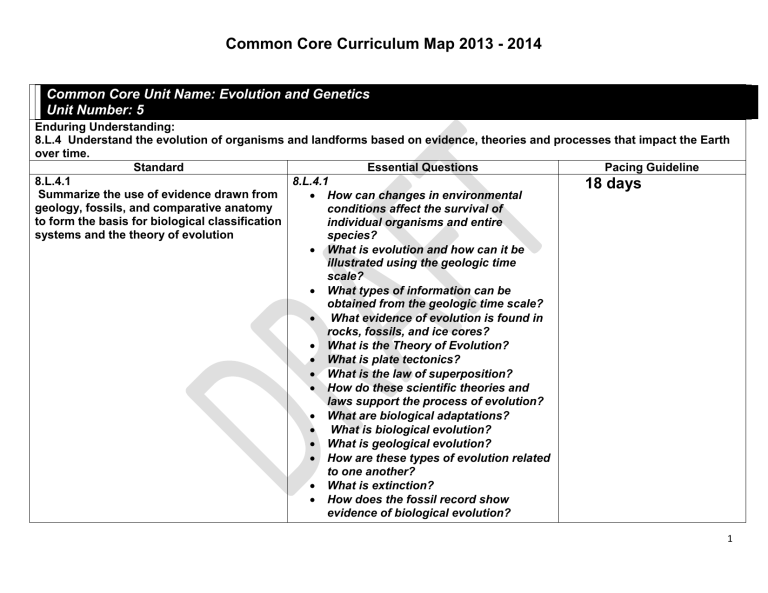
Common Core Curriculum Map 2013 - 2014
Common Core Unit Name: Evolution and Genetics
Unit Number: 5
Enduring Understanding:
8.L.4 Understand the evolution of organisms and landforms based on evidence, theories and processes that impact the Earth over time.
Standard Essential Questions Pacing Guideline
8.L.4.1
Summarize the use of evidence drawn from geology, fossils, and comparative anatomy to form the basis for biological classification systems and the theory of evolution
8.L.4.1
How can changes in environmental conditions affect the survival of individual organisms and entire species?
What is evolution and how can it be illustrated using the geologic time scale?
What types of information can be obtained from the geologic time scale?
What evidence of evolution is found in rocks, fossils, and ice cores?
What is the Theory of Evolution?
What is plate tectonics?
What is the law of superposition?
How do these scientific theories and laws support the process of evolution?
What are biological adaptations?
What is biological evolution?
What is geological evolution?
How are these types of evolution related to one another?
What is extinction?
How does the fossil record show evidence of biological evolution?
18 days
1
Common Core Curriculum Map 2013 - 2014
8.L.4.2
Explain the relationship between genetic variation and an organism’s ability to adapt to its environment.
How does the fossil record provide evidence of extinction?
How do scientists classify organisms?
How does a classification system allow scientists to examine relationships between various organisms?
What is taxonomy?
8.L.4.2.
What allows some organisms to survive and have offspring and others to go extinct?
How can changes in environmental conditions affect the survival of individual organisms and entire species?
What is genetic diversity?
What is DNA and how is it unique to each individual (organism)?
What is phenotypic variation?
What morphological, biochemical and behavioral features allow living organisms to adapt to their environment?
How has evolutionary biology demonstrated that adaptations arise through selection acting on genetic variation?
2
Adaptation
Alleles
Analogous structures
Archaea
bacteria
Binominal nomenclature
Biochemical
Biological evolution
Class
Classification
Codominance
DNA
Domain
Dominant allele
Embryo
Embryology
Environment
Eubacteria
Eurarya
Evolution
Extinct
Fertilization
Fossils
Fungus
Gene
Genetic variation
Behavioral
Genotype
Geological evolution
Geological time scale
Heredity
Heterozygous
Common Core Curriculum Map 2013 - 2014
Essential Vocabulary
Homologous structures
Homozygous
Hybrid,
Ice cores
Invertebrates
Kingdom
Law of
Superposition
Meiosis
Mitosis
Morphological
Mutation
Natural selection
Offspring
Organism
Phenotype
Phenotypic variation
Phylum
Plate Tectonics
Theory
Plates
probability
Protist
Punnett square
Purebred
Recessive allele
RNA
(messenger, transfer)
Sedimentary rock
Species
Taxonomy
Theory of
Evolution
Trait genetics
Variation
Vertebrates
Vestigial structure
3
